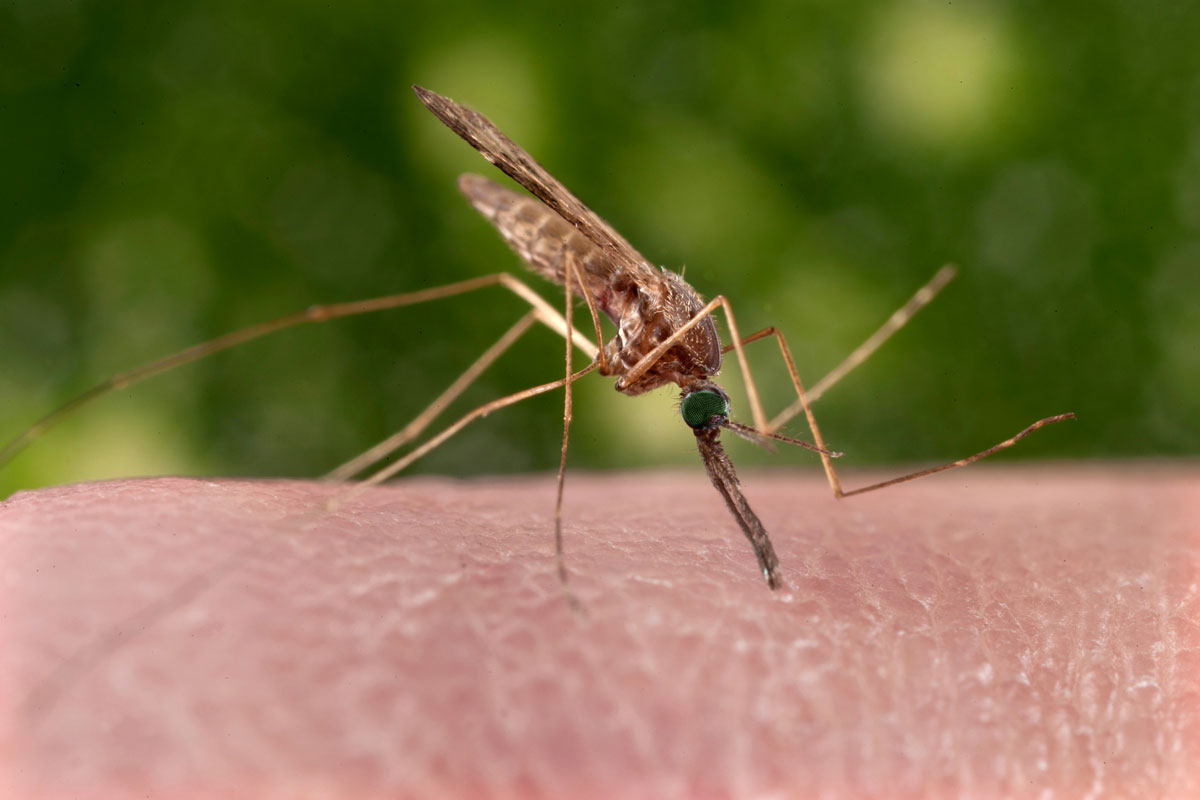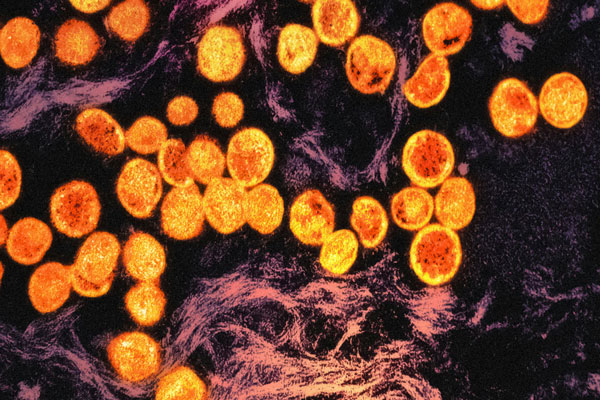Delivering a malaria vaccine through a mosquito's bite
Scientists have genetically modified malaria parasites so that a mosquito bite is protective rather than pathogenic.
- 29 November 2024
- 3 min read
- by Priya Joi

Scientists may have found a promising new way of protecting people against malaria, by genetically modifying the malaria parasite to trigger immunity rather than cause disease when it enters our bloodstream.
Malaria kills millions every year and the P. falciparum parasite that causes it is a tricky enemy. Vaccines prime the immune system to recognise parts of infectious pathogens (often proteins found on the surface). However parasites change form frequently as they move through their life cycle, making it a moving target.
But we are now entering a new era in the battle against malaria. After decades of research, two new breakthrough vaccines were developed in recent years that promise to help reduce infections. And a new trial published in the New England Journal of Medicine could pave the way for a new vaccine delivered by mosquito bite.
Genetic modifications
Scientists have a long history of trying to alter malaria-carrying mosquitoes to stop them spreading malaria. There have been sterilised mosquitoes that can’t breed; mosquitoes altered to stop them biting people; and mosquitoes altered to be unable to carry the malaria parasite.
In this new study, Lamers et al turned their attention to the parasite itself. Traditionally, P. falciparum wreaks havoc by invading the liver then the red blood cells, leading to potentially deadly symptoms.
Because the parasite dies before it infects the blood cells and evolves into its deadly phase, it instead acts as a way of priming the immune system, as a vaccination usually would.
The team genetically modified the parasite so that it dies six days after a mosquito bite sends it into the body, when it is still in the first stage of its life cycle in the liver. Normally, it moves from this liver stage into the bloodstream, where it causes infection and symptoms begin.
But because the parasite dies before it infects the blood cells and evolves into its deadly phase, it instead acts as a way of priming the immune system, as a vaccination usually would.
Have you read?
Co-opting the parasite
The researchers developed a genetically modified parasite that they called GA1, and then created a second iteration they called GA2 in which development was arrested later on in the liver stage.
They decided to test both on a small group of participants by exposing them to mosquitoes.
One group (eight people) were bitten by mosquitoes with GA1 parasites, a second group (nine people) with GA2, and the third group (three people) were in the placebo group (they were bitten by uninfected mosquitoes).
After three weeks, all participants were exposed to malaria-carrying mosquitoes to test the vaccine’s efficacy.
The results were striking. Before being exposed to malaria-carrying mosquitoes, both groups who had been bitten with modified mosquitoes showed increased antibody levels. However, the GA2 group had a strong immune protection of 89% compared with the GA1 group (13%). The only reported side effects were minor itching from the mosquito bites.
The researchers noted that although this was a very small study and this approach will need further investigation, the efficacy of the vaccine and the lack of breakthrough infections were promising.









